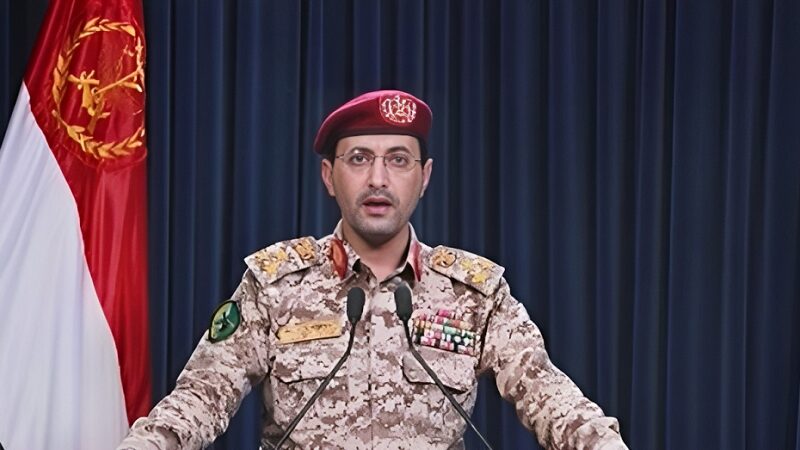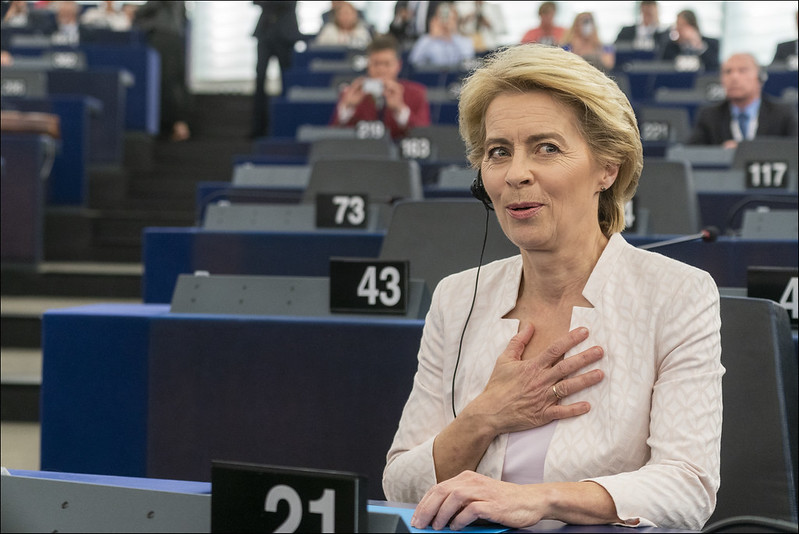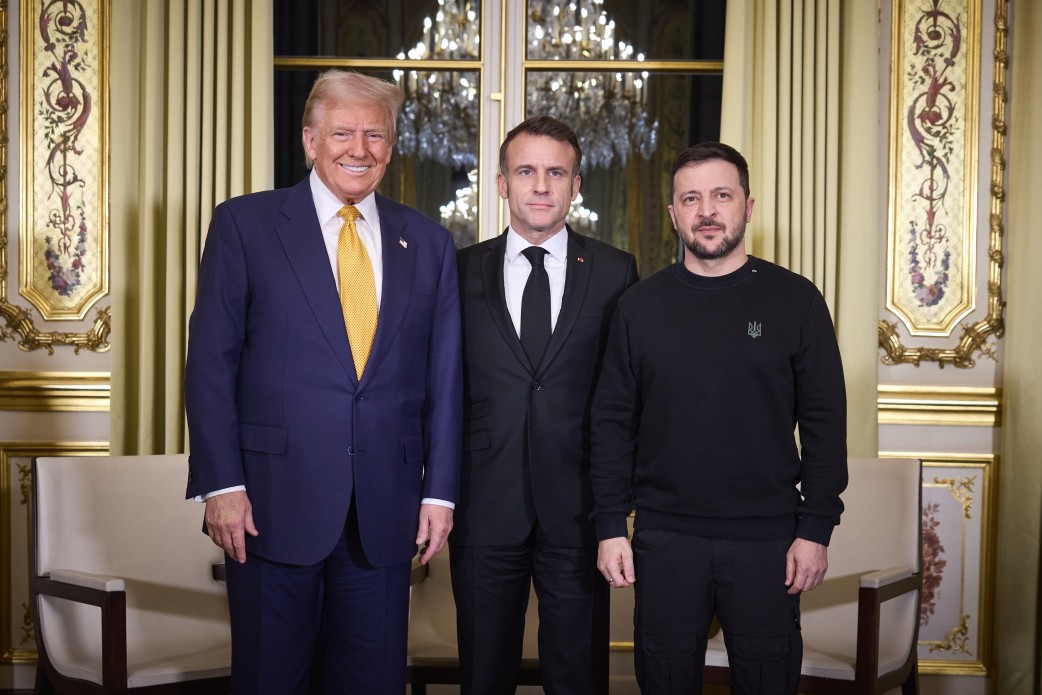On the campaign trail, Trump talked of having learned lessons from his first term in office, that he “didn’t know anybody” in Washington, and that he would end the war in Ukraine on the always-symbolic “Day 1”.
Now three months into his tenure and a mixture of early setbacks and distractions are risking total and perhaps irrecoverable failure of his initial foreign policy aims.
In January of last year, Trump, then the leading GOP contender for the presidency, lambasted Joe Biden’s decision to bomb the Houthis of Yemen during their initial stages of attacks on merchant shipping in the Red Sea. Later on, in advance of the November elections, it was announced that a ceasefire had been agreed to between Israel and Hamas that was largely credited to a Trump foreign policy team that had not even entered into their official positions yet.
The ceasefire also brought an end to the Red Sea shipping attacks by the Houthis, seemingly suggesting that Trump understood how to resolve the problem without resorting to the bombs he opposed 10 months before.
Now however, Trump has resumed Biden’s bombing of Yemen at a more ferocious clip, using both MQ-9 Reaper drones and B-2 heavy bombers launched from the Diego Garcia air base in the Indian Ocean. Dozens of civilians in and around the capital of Sana’a have been killed in the bombing, which White House and national security officials have defended as having taken a significant toll on the Houthi’s offensive capabilities.
The bombing corresponded to the Signal messaging chat scandal in which the most senior of Trump’s national security staff openly talked about war plans in a Signal group chat organized by National Security Advisor Michael Waltz, who “accidentally” invited Jeffrey Goldberg, a senior editor at The Atlantic with an anti-Trump reporting bent.
Cabinet members such as Director of National Intelligence Tulsi Gabbard and Vice President J.D. Vance were revealed to have used extremely hawkish language and emojis to celebrate the targeting of a senior Houthi official in a bombing that killed or injured over 30 civilians.
The Houthi’s rudimentary air defenses however just shot down a third Reaper drone in the space of 10 days, the fourth since Donald Trump took office, and the 18th since Biden began bombing Yemen, showing that the Houthi’s capabilities are more resilient than the damage this expanded bombing campaign has done.
Houthi military spokesman Yahya Saree said on Wednesday that Yemeni forces were “able to shoot down an American MQ-9 drone while it was carrying out hostile missions in the airspace of al-Jawf Governorate”. Saree also claimed more attacks on Israel and on US warships in the region, without detailing their effects, and reiterated Yemen’s commitment to continue such attacks until the siege of Gaza and the West Bank is ended.
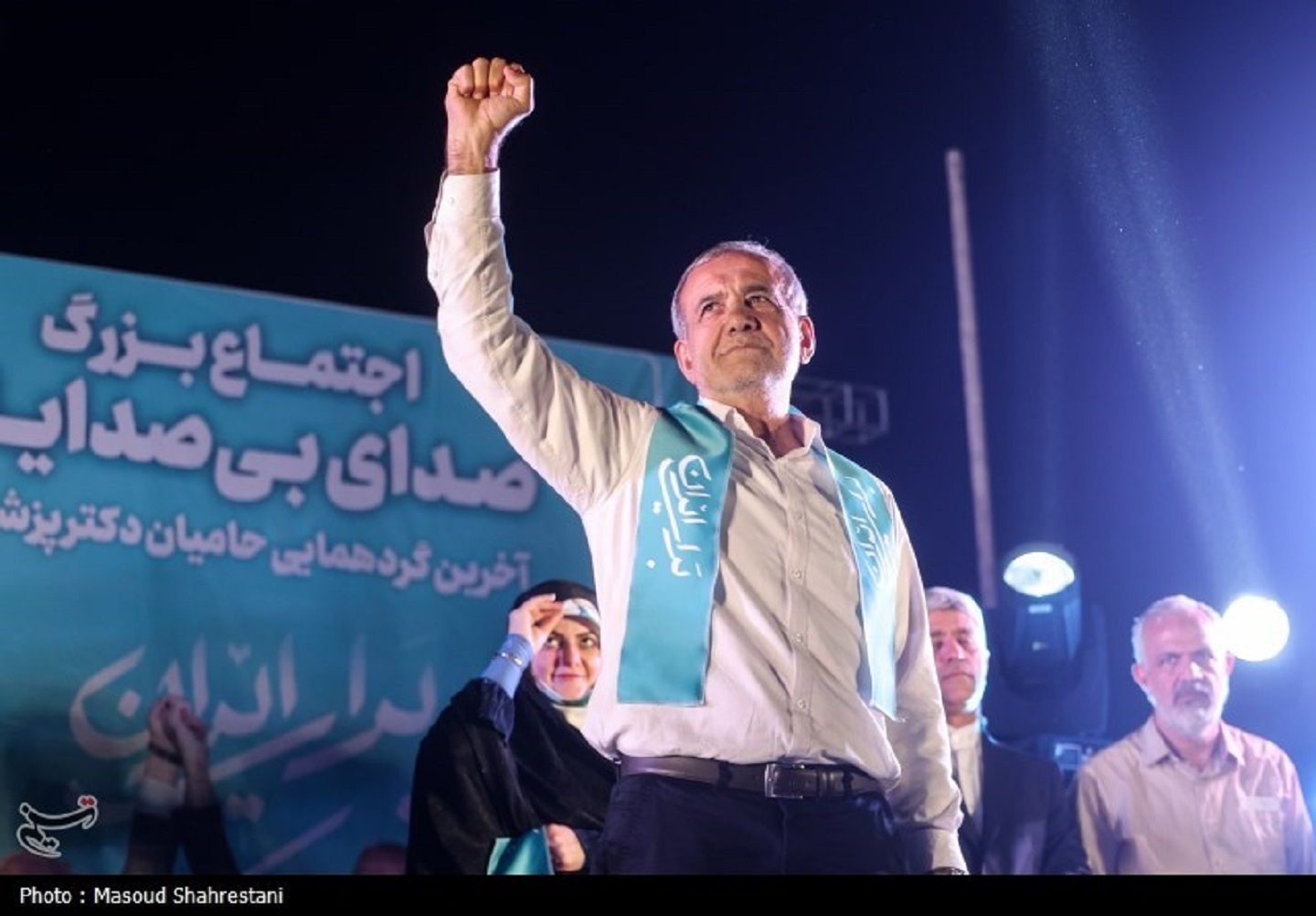
Iran
In late March, Gabbard called President Trump the “president of peace” despite his bombing campaign in Yemen.
“President Trump IS the President of Peace. He is ending bloodshed across the world and will deliver lasting peace in the Middle East,” Gabbard wrote on X. “Where Joe Biden failed, President Trump will succeed”.
Award-winning reporter Dave DeCamp at Antiwar reported that Gabbard had previously opposed US intervention against the Houthis in Yemen, which she called “genocidal” during President Trump’s first term in office. But she has supported the new bombing campaign, which still hasn’t been authorized by Congress, and replied to the news of the residential building being hit in the Signal chat by saying, “Great works and effects!”
The war fever that is so typical in Washington’s most powerful offices has also struck the second Trump Administration in regards to Iran, and at the earliest sign of resistance from Tehran to complete capitulation to Trump’s demands, the President has talked openly of launching a coordinated bombing campaign if key concerns on nuclear energy are not addressed.
“If they don’t make a deal, there will be bombing. It will be bombing the likes of which they have never seen before,” Trump told NBC News in a phone interview on March 30th. US intelligence agencies have already conducted their annual threat assessments in the region, and determined that there’s no evidence Iran is trying to build a nuclear weapon.
Trump’s very first approach to Tehran was an ultimatum: sign an agreement in two months or risk a response that may include military action. This was roughly similar to Trump’s approach to Iran towards his whole first term, but Iranian President Masoud Pezeshkian simply replied that direct talks with the US were against current policies, and that maybe they could be reached via Omani mediators.
Whatever lessons Trump claimed to have learned from his first term, they clearly didn’t involve negotiating with Iran. Following the letter, Israel’s Benjamin Netanyahu stated that any agreement with Tehran should involve the explosive demolition of nuclear sites of concern, rather than simply closing them down. Several days after that, Trump admitted that Israel might “lead” the attack on Iran, and that the US would support it.
Trump has always styled himself a deal-maker, and there shouldn’t be any doubt that Iran’s resistance to his demands across his first four years will be something he aims to put right. However, he’s resumed diplomatic activities with the perceived adversary in exactly the same way he left them in 2021, and the definition of insanity is well-known in American society.
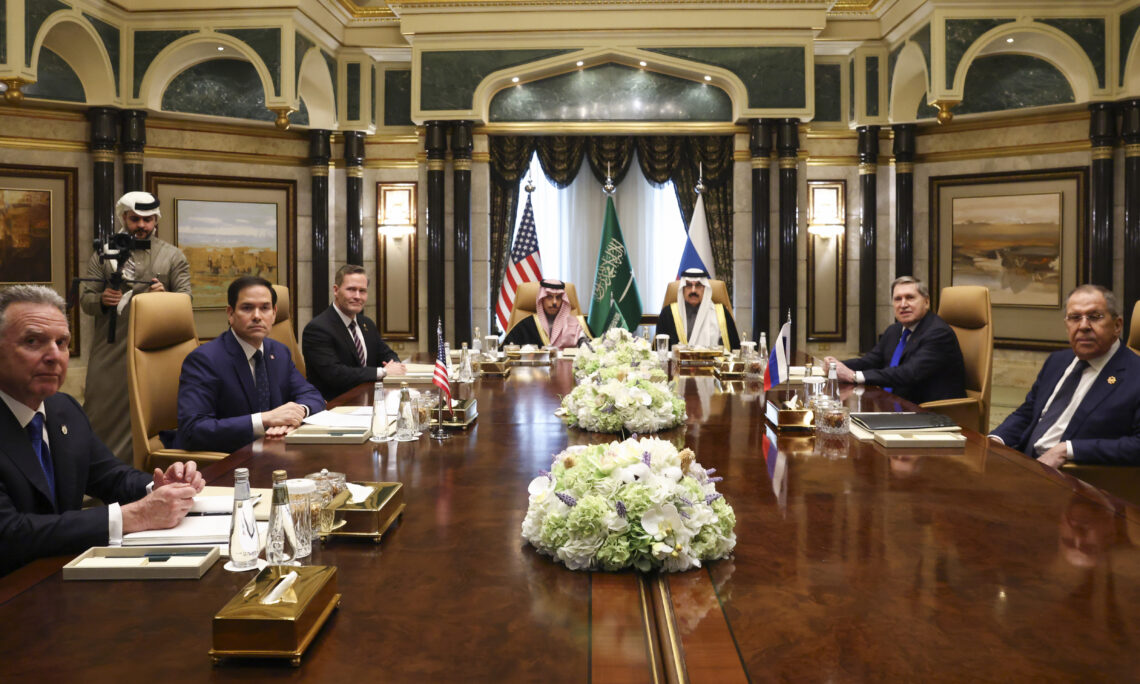
Ukraine
There was a lot of early enthusiasm among Trump supporters that he could bring about an end to the war in Ukraine and back the US away from the edge of nuclear-armed proxy war with Russia.
Yet after 80 days in the Oval Office, Russia’s attacks against Ukraine have grown along with Trump’s frustrations that the aspects of key initial talks haven’t already been implemented and moved forward with.
Early suggestions like the involvement of US enterprise in Ukrainian mineral wealth, of a ceasefire on civilian shipping in the Black Sea, and an end on attacks against energy infrastructure were met by all sides positively, but fallout from the infamous meeting with Zelenskyy in the Oval Office and finger pointing from Moscow and Kyiv over ceasefire violations have meant that this early progress has regressed.
During talks in February between Secretary of State Marco Rubio and Russian Foreign Minister Sergei Lavrov in Saudi Arabia, Trump’s Special Envoy Steve Witkoff said that future peace agreements would be along the lines of the Istanbul Treaty framework that was almost signed and implemented in April of 2022, just two months after the invasion began.
Russia’s Ambassador to the UN Vasily Nebenzya said the Kremlin remained interested in an agreement, but all levels of such an agreement would have to be implemented before Russia ceases operations.
“We are open to a meaningful and practical dialogue, but we will not allow anyone to deceive us or to use this negotiation process, directly or indirectly, to enhance the military potential of the Kiev regime,” Nebenzya told the UN Security Council earlier this week.
“To achieve this, it is essential to address the root causes, one of which is the influx of Western weapons into Ukraine. As we all know, this flow began long before the start of our special military operation and was facilitated under the cover of the Minsk agreements”.
By the end of March, Trump said he was “very angry,” and “pissed off” with President Putin for questioning Zelenskyy’s role in the post-war leadership of Ukraine “because that’s not going in the right location,” referring to negotiations.
“If Russia and I are unable to make a deal on stopping the bloodshed in Ukraine, and if I think it was Russia’s fault – which it might not be… I am going to put secondary tariffs… on all oil coming out of Russia,” he told NBC News.
In seemingly every conflict zone Trump has tried to throw his weight around in, concessions are not being given, and demands not being met. Trump supporter and senior editor of the journal Modern Age Dan McCarthy suggested in a recent radio interview that the President seems unable to focus on any single situation for the length of time needed to make any substantial progress, and that he’s getting bogged down by significantly less important issues.
Trump’s famously short temper seems ill-suited to this kind of political activity, and with the incredible amount of dialogue that will be forthcoming after the new tariff regime and other action points like the vigorous persecution of student visa holders engaged in criticism of Israel, which will now be screened for consideration on all longer-term visa applications, distractions are emerging that risk taking even more of his attention away from stated foreign policy objectives. WaL
We Humbly Ask For Your Support—Follow the link here to see all the ways, monetary and non-monetary.
PICTURED ABOVE: Houthi military spokesman Yahya Saree. PC: Saba News.
